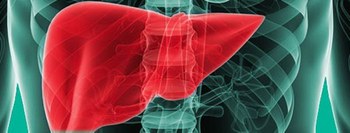The research group, coordinated by Prof. Paolo Caraceni from the Department of Medical and Surgical Sciences, recently took part in a major European project investigating the effectiveness of the combination of Simvastatin and Rifaximin in treating patients with decompensated liver cirrhosis. The study, led by researchers from the Liver Unit at Hospital Clinic in Barcelona, involved over 230 patients across 14 centers in 9 European countries. It represented a significant step forward in research on chronic liver diseases, particularly in the treatment and prevention of cirrhosis complications. The results were published in the renowned international scientific journal JAMA (Journal of the American Medical Association).
Research Background
Liver cirrhosis is a progressive and debilitating condition affecting millions of people worldwide. End-stage liver failure, the final stage of the disease, leads to severe complications and can result in death. Despite significant advancements in recent decades, effective treatments to prevent disease progression in its most advanced stages remain limited. The LIVERHOPE project explored the possibility of combining two well-known and widely used drugs: Rifaximin, a non-absorbable antibiotic capable of modulating the gut microbiota, commonly used to prevent hepatic encephalopathy recurrence, and Simvastatin, known for its role in cholesterol management and cardiovascular prevention. Both drugs have theoretical potential in reducing systemic inflammation and slowing cirrhosis progression.
The Study
This randomized controlled clinical trial, conducted between 2019 and 2022, enrolled 237 patients with decompensated cirrhosis, divided into two groups: one treated with the combination of Simvastatin (20 mg/day) and Rifaximin (1200 mg/day), and the other with a placebo, for a total of 12 months. The primary objective was to assess whether this combination could reduce the incidence of acute-on-chronic liver failure (ACLF). Secondary objectives included the prevention of clinical events such as ascitic decompensation, hepatic encephalopathy, and gastrointestinal bleeding, as well as the need for liver transplantation and overall mortality risk.
Results
Data analysis did not show significant differences between the two groups in terms of the considered events, leading to the conclusion that the combination of Rifaximin and Simvastatin, in addition to standard medical therapy, does not alter the clinical course in patients with decompensated cirrhosis.
This does not mean that the studied drugs are ineffective for their currently indicated clinical uses (and they should not be discontinued in patients already taking them).
Although the result was technically negative, the project contributed to a deeper understanding of the mechanisms underlying decompensated cirrhosis and provides valuable insights for future treatment recommendations in the advanced stages of this disease.
Our Contribution
Dr. Giacomo Zaccherini and the research team from the Medical Semiotics, Liver, and Alcohol-Related Diseases Unit, led by Prof. Paolo Caraceni, took part in the project. The group played a significant role in this and other studies published over six years of the European research consortium "LIVERHOPE." The clinical and research experience gained has strengthened the joint role of DIMEC and the IRCCS University Hospital of Bologna as a center of excellence in liver disease care.
For more information about the LIVERHOPE European Consortium:
https://www.liverhopeh2020.eu/index_it
Full study available on the official JAMA website:
https://jamanetwork.com/journals/jama/article-abstract/2829933

